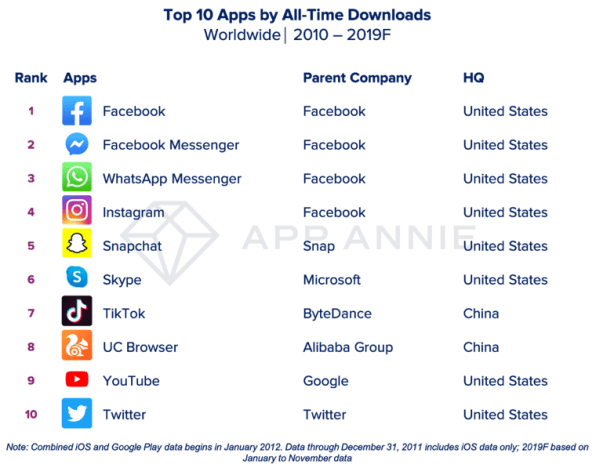- "Inequality encourages the rich to invest not innovation but in... means of entrenching their privilege and power"
- "Unequal corporate hierarchies can demotivate junior employees"
- "Economic inequality leads to less trust"
- "Inequality can prevent productivity-enhancing change"
- "Inequality can cause the rich to be fearful of future redistribution or nationalization, which will make them loath to invest"
- "Inequalities of power... have allowed governments to abandon the aim of truly full employment and given firms more ability to boost profits by suppressing wages and conditions [which] has disincentivized investments in labour-saving technologies"
- "High-powered incentives that generate inequality within companies can backfire... [as] they encourage bosses to hit measured targets and neglect less measurable things"
- "High management pay can entrench... the 'forces of conservatism' which are antagonistic to technical progress"
- Why High-Class People Get Away With Incompetence (The New York Times) — "Even researchers who specialize in social class struggle to agree on the weight to give income, family wealth, professional prestige and other factors."
- “Is it unethical to not tell my employer I’ve automated my job?” (Fast Company) — "The fear that people are disposable if their productivity can be bested by technology may lead to a confidence of trust as well as unpleasant and unintended consequences."
- Should You Tell the World How Much Money You Make? (The New York Times) — Secrecy is one reason accurate salary data is hard to find. It also benefits companies if employees underestimate their value."
- A New York School District Will Test Facial Recognition System On Students Even Though The State Asked It To Wait (BuzzFeed News) — "Rep. Alexandria Ocasio-Cortez has expressed concern in a congressional hearing on the technology last week that facial recognition could be used as a form of social control."
- Amazon preparing a wearable that ‘reads human emotions,’ says report (The Verge) — "This is definitely one of those things that hasn’t yet been done because of how hard it is to do."
- Google’s Sundar Pichai: Privacy Should Not Be a Luxury Good (The New York Times) — "Ideally, privacy legislation would require all businesses to accept responsibility for the impact of their data processing in a way that creates consistent and universal protections for individuals and society as a whole.
Eating the rich is optional, taxing them is mandatory
The article in Insider discusses the findings of the 2022 World Inequality Report, which highlights extreme levels of wealth and income inequality globally. The report was coordinated by leading economists and debunks the trickle-down economic theory.
They found that the bottom half of the global population owns just 2% of total wealth, while the top 10% holds 76%. It also notes that billionaires now hold a 3% share of global wealth, up from 1% in 1995. As everyone knows, inequality is a result of political choices and the only way to fix it is through progressive wealth taxes and perhaps even reparations.

The data serves as a complete rebuke of the trickle-down economic theory, which posits that cutting taxes on the rich will "trickle down" to those below, with the cuts eventually benefiting everyone. In America, trickle-down was exemplified by President Ronald Reagan's tax slashes. It's a theory that persists today, even though most research has shown that 50 years of tax cuts benefits the wealthy and worsens inequality.Source: Huge 20-Year Study Shows Trickle-Down Is a Myth, Inequality Rampant | InsiderThe researchers are some of the leading minds on inequality in the entire field of economics. Chancel is the co-director of the World Inequality Lab, while Saez and Zucman have literally written a book on the rich dodging taxes and helped create wealth tax proposals for senators like Elizabeth Warren and Bernie Sanders.
[…]
Billionaire gains are a well-documented trend: The left-leaning Institute for Policy Studies and Americans for Tax Fairness found that Americans added $2.1 trillion to their wealth during the pandemic, a 70% increase.
Image: Mathieu Stern
Structural insecurity
This fantastic piece by Astra Taylor, whose book The Age of Insecurity is on my to-read list, is sadly behind a paywall. I managed to bypass it, which is why I’m excerpting so much in this post.
What I like is the separation of inequality from insecurity and the difference between existential insecurity from ‘manufactured’ insecurity. Being published in The New York Times, the context is the American economy which largely exists without a social safety net.
The situation is better in the UK/Europe, but we still live in a much more economically precarious world than our parents and grandparents did. And perhaps that’s why everyone’s anxious all of the time.

Since 2020, the richest 1 percent has captured nearly two-thirds of all new wealth globally — almost twice as much money as the rest of the world’s population. At the beginning of last year, it was estimated that 10 billionaire men possessed six times as much wealth as the poorest three billion people on Earth. In the United States, the richest 10 percent of households own more than 70 percent of the country’s assets.Source: Why Does Everyone Feel So Insecure All the Time? | The New York TimesSuch statistics are appalling. They have also become familiar. Since it was catapulted onto the national stage more than a decade ago by Occupy Wall Street, “inequality” has been a frequent topic of conversation in American political life. It helped animate Bernie Sanders’s influential campaigns, reshaped academic scholarship, shifted public policy, and continues to galvanize protest. And yet, however important focusing on the inequality crisis has been, it has also proven insufficient.
If we want to understand contemporary economic life, we need a more expansive framework. We need to think about insecurity. Where inequality encourages us to look up and down, to note extremes of indigence and opulence, insecurity encourages us to look sideways and recognize potentially powerful commonalities.
If inequality can be captured in statistics, insecurity requires talking about feelings: It is, to borrow a phrase from feminism, personal as well as political. Economic issues, I’ve come to realize, are also emotional ones: the spike of shame when a bill collector calls, the adrenaline when the rent or mortgage is due, the foreboding when you think about retirement.
And unlike inequality, insecurity is more than a binary of haves and have-nots. Its universality reveals the degree to which unnecessary suffering is widespread — even among those who appear to be doing well. We are all, to varying degrees, overwhelmed and apprehensive, fearful of what the future might have in store. We are on guard, anxious, incomplete and exposed to risk. To cope, we scramble and strive, shoring ourselves up against potential threats. We work hard, shop hard, hustle, get credentialed, scrimp and save, invest, diet, self-medicate, meditate, exercise, exfoliate.
[…]
Rather than something to pathologize, I want us to see insecurity as an opportunity. We all need protection from life’s hazards, natural or human-made. The simple acceptance of our mutual vulnerability — of the fact that we all need and deserve care throughout our lives — has potentially transformative implications. When we spur people on with insecurity because we expect the worst from them, we create a vicious cycle that stokes desperation and division while facilitating the kind of cutthroat competition and consumption that has brought our fragile planet to a catastrophic brink. When we extend trust and support to others, we improve everyone’s security — including our own.
[…]
Insecurity, after all, is what makes us human, and it is also what allows us to connect and change. “Nothing in Nature ‘becomes itself’ without being vulnerable,” writes the physician Gabor Maté in “The Myth of Normal.” “The mightiest tree’s growth requires soft and supple shoots, just as the hardest-shelled crustacean must first molt and become soft.” There is no growth, he observes, without emotional vulnerability.
The same also applies to societies. Recognizing our shared existential insecurity, and understanding how it is currently used against us, can be a first step toward forging solidarity. Solidarity, in the end, is one of the most important forms of security we can possess — the security of confronting our shared predicament as humans on this planet in crisis, together.
#AbolishTheMonarchy
It’s Jubilee weekend in the UK, not that I’m celebrating. Someone re-shared this classic article in The Irish Times from last year which expresses just the entire ridiculousness of venerating a talentless inbred family.
Source: Harry and Meghan: The union of two great houses, the Windsors and the Celebrities, is complete | The Irish TimesThe contemporary royals have no real power. They serve entirely to enshrine classism in the British nonconstitution. They live in high luxury and low autonomy, cosplaying as their ancestors, and are the subject of constant psychosocial projection from people mourning the loss of empire. They’re basically a Rorschach test that the tabloids hold up in order to gauge what level of hysterical batshittery their readers are capable of at any moment in time.
The certainties of one age are the problems of the next
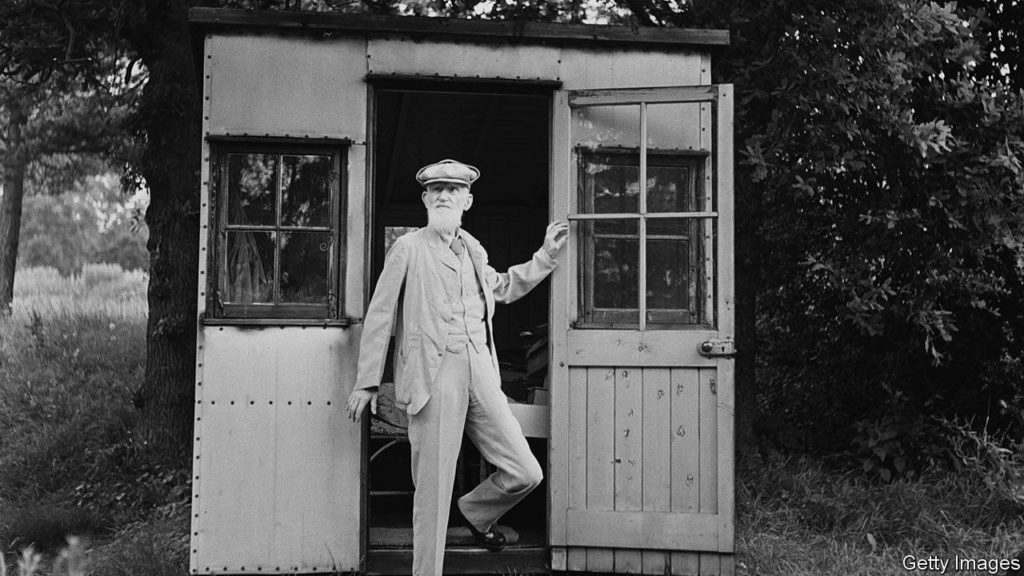
🏙️ How the spread of sheds threatens cities — "A white-collar worker who has tried to work from the kitchen table for the past nine months might be keen to return to the office. A worker who has an insulated garden shed with Wi-Fi will be less so. Joel Bird, who builds bespoke sheds, is certain that his clients envisage a long-term change in their working habits. “They don’t consider it to be temporary,” he says. “They’re spending too much money.”
😬 Transactional Enchantment — "The greatest endemic risk to the psyche in 2021 is not that you’ll end up on the streets next week or fail to fund your retirement in 30 years. The greatest risk is that you’ll feel so relentlessly battered by the weirdness all around that you’ll go numb and simply disengage from the world entirely today."
🕸️ The unreasonable effectiveness of simple HTML — "Are you developing public services? Or a system that people might access when they’re in desperate need of help? Plain HTML works. A small bit of simple CSS will make look decent. JavaScript is probably unnecessary – but can be used to progressively enhance stuff. Add alt text to images so people paying per MB can understand what the images are for (and, you know, accessibility)."
💬 Convocational Development — "The fundamental difference between the convocation and traditional open source is that energy is put into facilitating discussions between users, coders, graphic designers etc. Documentation and instructions are often the weakest part of an open source project, and that excludes people who don’t have the time or ability to assemble a mental model of the open source software and its capabilities from just the code and the meagre promotional materials. The convocation starts as a basic web forum, but evolves tools and cultures that enable greater participation in the development process itself."
📈 GameStop Is Rage Against the Financial Machine — "Instead of greed, this latest bout of speculation, and especially the extraordinary excitement at GameStop, has a different emotional driver: anger. The people investing today are driven by righteous anger, about generational injustice, about what they see as the corruption and unfairness of the way banks were bailed out in 2008 without having to pay legal penalties later, and about lacerating poverty and inequality. This makes it unlike any of the speculative rallies and crashes that have preceded it."
Quotation-as-title by R.H. Tawney. Image from top-linked post.
Privilege and pandemic
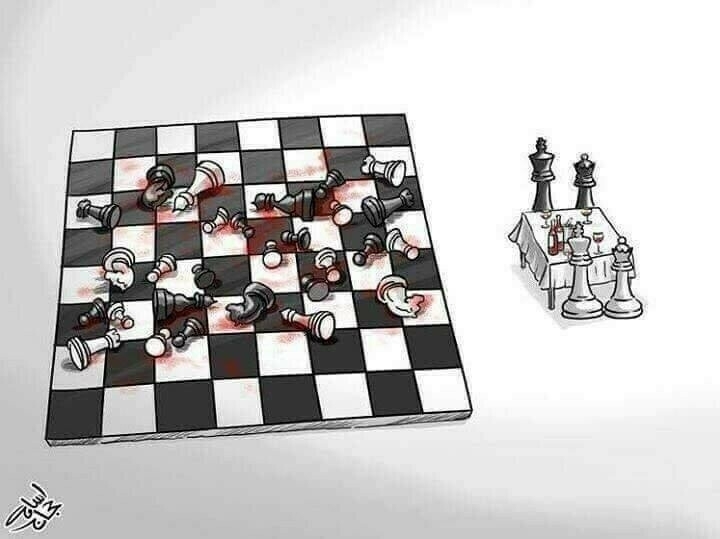
I found this via Mastodon and immediately had to post it here. I'm not sure about the original artist, but it struck me as capturing our current moment rather well.
Saturday scrapings
Every week, I go back through the links I've saved, pick out the best ones, and share them here. This week is perhaps even more eclectic than usual. Enjoy!
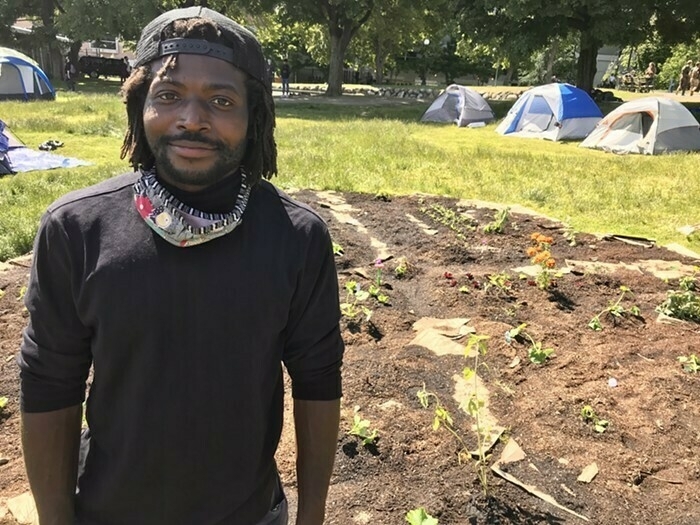
Meet the Farmer Behind CHAZ's Vegetable Gardens
Marcus was the first to start gardening in the park, though he was quickly joined by friends and strangers. This isn’t the work of a casual amateur; Henderson has an Energy Resources Engineering degree from Stanford University, a Master’s degree in Sustainability in the Urban Environment, and years of experience working in sustainable agriculture. His Instagram shows him hard at work on various construction and gardening projects, and he’s done community development at organic farms around the world.
Matt Baume (The Stranger)
I love this short article about Marcus Henderson, the first person to start planting in Seattle's Capitol Hill Autonomous Zone.
The Rich Are 'Defunding' Our Democracy
“Apparently,” comments [journalist David] Sirota, “we’re expected to be horrified by proposals to reduce funding for the militarized police forces that are violently attacking peaceful protesters — but we’re supposed to obediently accept the defunding of the police forces responsible for protecting the population from the wealthy and powerful.”
Sam Pizzigati (Inequality.org)
A lot of people have been shocked by the calls to 'defund the police' on the back of the Black Lives Matter protests. The situation is undoubtedly worse in the US, but I particularly liked this explainer image, that I came across via Mastodon:
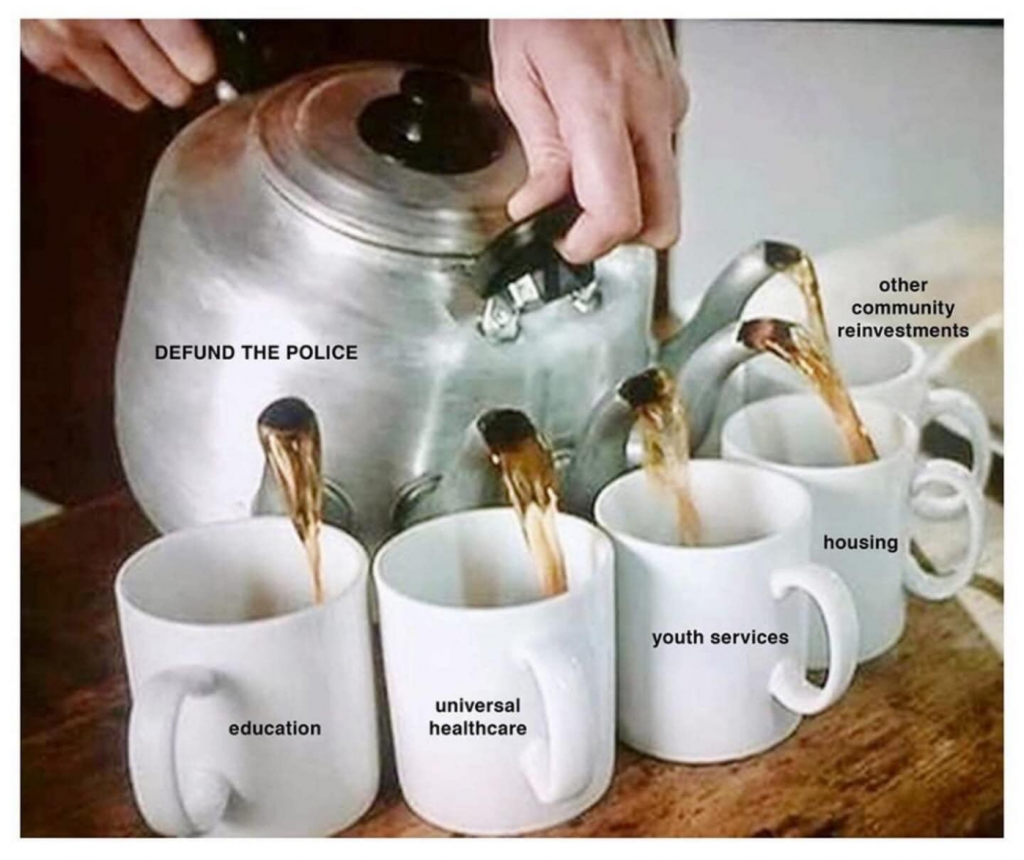
Peasants' Revolt
Yet perhaps the most surprising feature of the revolt is that in-spite of the modern title, Peasants' Revolt didn't gain usage until the late nineteenth century, the people who animated the movement weren't peasants at all. They were in many respects the village elite. True, they weren't noble magnates, but they were constables, stewards and jurors. In short, people who were on the up and saw an opportunity to press their agenda.
Robert Winter
I love reading about things I used to teach, especially when they're written by interesting people about which I want to know more. This blog post is by Robert Winter, "philosopher and historian by training, Operations Director by pay cheque". I discovered is as part of the #100DaysToOffload challenge, largely happening on the Fediverse, and to which I'm contributing.

Three people with inherited diseases successfully treated with CRISPR
Two people with beta thalassaemia and one with sickle cell disease no longer require blood transfusions, which are normally used to treat severe forms of these inherited diseases, after their bone marrow stem cells were gene-edited with CRISPR.
Michael Le Page (New Scientist)
CRISPR is a way of doing gene editing within organisms. sAs far as I'm aware, this is one of the first times it's been used to treat conditions in humans. I'm sure it won't be the last.
Choose Your Own Fake News
Choose Your Own Fake News is an interactive "choose your own adventure" game. Play the game as Flora, Jo or Aida from East Africa, and navigate the world of disinformation and misinformation through the choices you make. Scrutinize news and information about job opportunities, vaccines and upcoming elections to make the right choices!
This is the kind of thing that the Mozilla Foundation does particularly well: either producing in-house, or funding very specific web-based tools to teach people things. In this case, it's fake news. And it's really good.
Why are Google and Apple dictating how European democracies fight coronavirus?
The immediate goal for governments and tech companies is to strike the right balance between privacy and the effectiveness of an application to limit the spread of Covid-19. This requires continuous collaboration between the two with the private sector, learning from the experience of national health authorities and adjusting accordingly. Latvia, together with the rest of Europe, stands firm in defending privacy, and is committed to respecting both the individual’s right to privacy and health while applying its own solutions to combat Covid-19.
Ieva Ilves (The Guardian)
This is an article written by an an adviser to the president of Latvia on information and digital policy. They explain some of the nuance behind the centralised vs decentralised contact tracing app models which I hadn't really thought about.
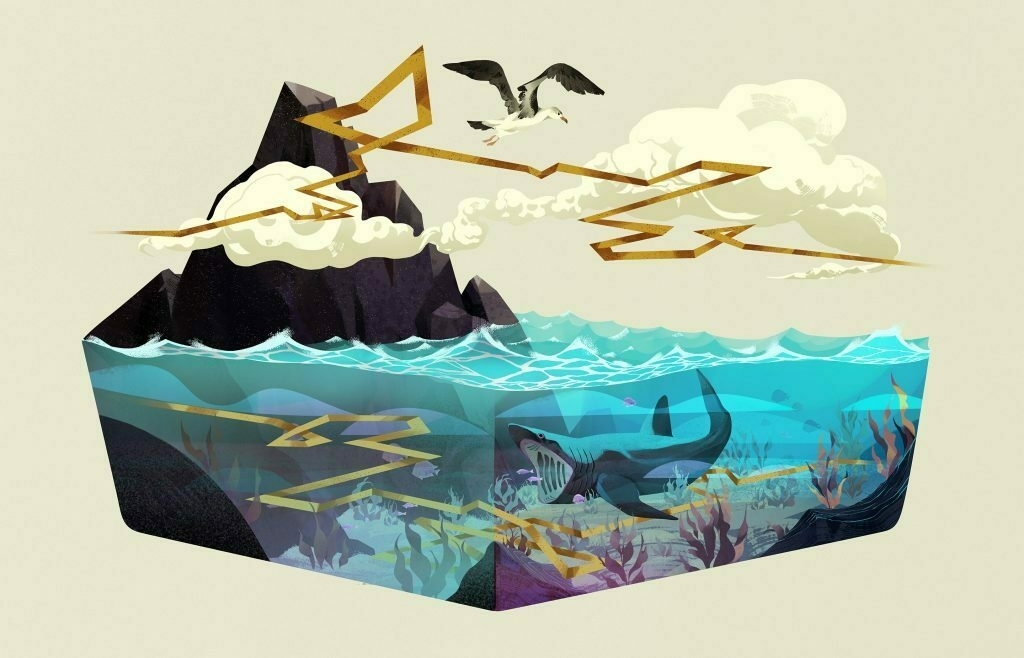
Random Search Wired Into Animals May Help Them Hunt
Lévy walks are now seen as a movement pattern that a nervous system can produce in the absence of useful sensory or mnemonic information, when it is an animal’s most advantageous search strategy. Of course, many animals may never employ a Lévy walk: If a polar bear can smell a seal, or a cheetah can see a gazelle, the animals are unlikely to engage in a random search strategy. “We expect the adaptation for Lévy walks to have appeared only where they confer practical advantages,” Viswanathan said.
Liam Drew (QUanta Magazine)
If you've watched wildlife documentaries, you probably know about Lévy walks (or 'flights'). This longish article gives a fascinating insight into the origin of the theory and how it can be useful in protecting different species.
A plan to turn the atmosphere into one, enormous sensor
One of AtmoSense’s first goals will be to locate and study phenomena at or close to Earth’s surface—storms, earthquakes, volcanic eruptions, mining operations and “mountain waves”, which are winds associated with mountain ranges. The aim is to see if atmospheric sensing can outperform existing methods: seismographs for earthquakes, Doppler weather radar for storms and so on.
The Economist
This sounds potentially game-changing. I can see the positives, but I wonder what the negatives will be?
Paths of desire: lockdown has lent a new twist to the trails we leave behind
Desire paths aren’t anything new – the term has been traced back to the French philosopher Gaston Bachelard, who wrote of “lignes de désir” in his 1958 book The Poetics of Space. Nature author Robert Macfarlane has written more recently about the inherent poetry of the paths. In his 2012 book The Old Ways: A Journey on Foot, Macfarlane calls them “elective easements” and says: “Paths are human; they are traces of our relationships.” Desire paths have been created by enthusiastic dogs in back gardens, by superstitious humans avoiding scaffolding and by students seeking shortcuts to class. Yet while illicit trails may have marked the easier (ie shorter) route for centuries, the pandemic has turned them into physical markers of our distance. Desire paths are no longer about making life easier for ourselves, but about preserving life for everyone.
Amelia Tait (The Guardian)
I've used desire paths as a metaphor many times in presentations and workshops over the last decade. This is an article that specifically talks about how they've sprung up during the pandemic.
Header image by Hans Braxmeier
It’s not a revolution if nobody loses
Thanks to Clay Shirky for today's title. It's true, isn't it? You can't claim something to be a true revolution unless someone, some organisation, or some group of people loses.
I'm happy to say that it's the turn of some older white men to be losing right now, and particularly delighted that those who have spent decades abusing and repressing people are getting their comeuppance.
Enough has been written about Epstein and the fallout from it. You can read about comments made by Richard Stallman, founder of the Free Software Foundation, in this Washington Post article. I've only met RMS (as he's known) in person once, at the Indie Tech Summit five years ago, but it wasn't a great experience. While I'm willing to cut visionary people some slack, he mostly acted like a jerk.
RMS is a revered figure in Free Software circles and it's actually quite difficult not to agree with his stance on many political and technological matters. That being said, he deserves everything he gets though for the comments he made about child abuse, for the way he's treated women for the past few decades, and his dictator-like approach to software projects.
In an article for WIRED entitled Richard Stallman’s Exit Heralds a New Era in Tech, Noam Cohen writes that we're entering a new age. I certainly hope so.
This is a lesson we are fast learning about freedom as it promoted by the tech world. It is not about ensuring that everyone can express their views and feelings. Freedom, in this telling, is about exclusion. The freedom to drive others away. And, until recently, freedom from consequences.
After 40 years of excluding those who didn’t serve his purposes, however, Stallman finds himself excluded by his peers. Freedom.
Maybe freedom, defined in this crude, top-down way, isn’t the be-all, end-all. Creating a vibrant inclusive community, it turns out, is as important to a software project as a coding breakthrough. Or, to put it in more familiar terms—driving away women, investing your hopes in a single, unassailable leader is a critical bug. The best patch will be to start a movement that is respectful, inclusive, and democratic.
Noam Cohen
One of the things that the next leaders of the Free Software Movement will have to address is how to take practical steps to guarantee our basic freedoms in a world where Big Tech provides surveillance to ever-more-powerful governments.
Cory Doctorow is an obvious person to look to in this regard. He has a history of understanding what's going on and writing about it in ways that people understand. In an article for The Globe and Mail, Doctorow notes that a decline in trust of political systems and experts more generally isn't because people are more gullible:
40 years of rising inequality and industry consolidation have turned our truth-seeking exercises into auctions, in which lawmakers, regulators and administrators are beholden to a small cohort of increasingly wealthy people who hold their financial and career futures in their hands.
[...]
To be in a world where the truth is up for auction is to be set adrift from rationality. No one is qualified to assess all the intensely technical truths required for survival: even if you can master media literacy and sort reputable scientific journals from junk pay-for-play ones; even if you can acquire the statistical literacy to evaluate studies for rigour; even if you can acquire the expertise to evaluate claims about the safety of opioids, you can’t do it all over again for your city’s building code, the aviation-safety standards governing your next flight, the food-safety standards governing the dinner you just ordered.
Cory Doctorow
What's this got to do with technology, and in particular Free Software?
Big Tech is part of this problem... because they have monopolies, thanks to decades of buying nascent competitors and merging with their largest competitors, of cornering vertical markets and crushing rivals who won't sell. Big Tech means that one company is in charge of the social lives of 2.3 billion people; it means another company controls the way we answer every question it occurs to us to ask. It means that companies can assert the right to control which software your devices can run, who can fix them, and when they must be sent to a landfill.
These companies, with their tax evasion, labour abuses, cavalier attitudes toward our privacy and their completely ordinary human frailty and self-deception, are unfit to rule our lives. But no one is fit to be our ruler. We deserve technological self-determination, not a corporatized internet made up of five giant services each filled with screenshots from the other four.
Cory Doctorow
Doctorow suggests breaking up these companies to end their de facto monopolies and level the playing field.
The problem of tech monopolies is something that Stowe Boyd explored in a recent article entitled Are Platforms Commons? Citing previous precedents around railroads, Boyd has many questions, including whether successful platforms be bound with the legal principles of 'common carriers', and finishes with this:
However, just one more question for today: what if ecosystems were constructed so that they were governed by the participants, rather by the hypercapitalist strivings of the platform owners — such as Apple, Google, Amazon, Facebook — or the heavy-handed regulators? Is there a middle ground where the needs of the end user and those building, marketing, and shipping products and services can be balanced, and a fair share of the profits are distributed not just through common carrier laws but by the shared economics of a commons, and where the platform orchestrator gets a fair share, as well? We may need to shift our thinking from common carrier to commons carrier, in the near future.
Stowe Boyd
The trouble is, simply establishing a commons doesn't solve all of the problems. In fact, what tends to happen next is well known:
The tragedy of the commons is a situation in a shared-resource system where individual users, acting independently according to their own self-interest, behave contrary to the common good of all users, by depleting or spoiling that resource through their collective action.
Wikipedia
An article in The Economist outlines the usual remedies to the 'tragedy of the commons': either governmental regulation (e.g. airspace), or property rights (e.g. land). However, the article cites the work of Elinor Ostrom, a Nobel prizewinning economist, showing that another way is possible:
An exclusive focus on states and markets as ways to control the use of commons neglects a varied menagerie of institutions throughout history. The information age provides modern examples, for example Wikipedia, a free, user-edited encyclopedia. The digital age would not have dawned without the private rewards that flowed to successful entrepreneurs. But vast swathes of the web that might function well as commons have been left in the hands of rich, relatively unaccountable tech firms.
[...]
A world rich in healthy commons would of necessity be one full of distributed, overlapping institutions of community governance. Cultivating these would be less politically rewarding than privatisation, which allows governments to trade responsibility for cash. But empowering commoners could mend rents in the civic fabric and alleviate frustration with out-of-touch elites.
The Economist
I count myself as someone on the left of politics, if that's how we're measuring things today. However, I don't think we need representation at any higher level than is strictly necessary.
In a time when technology allows you, to a great extent, to represent yourself, perhaps we need ways of demonstrating how complex and multi-faceted some issues are? Perhaps we need to try 'liquid democracy':
Liquid democracy lies between direct and representative democracy. In direct democracy, participants must vote personally on all issues, while in representative democracy participants vote for representatives once in certain election cycles. Meanwhile, liquid democracy does not depend on representatives but rather on a weighted and transitory delegation of votes. Liquid democracy through elections can empower individuals to become sole interpreters of the interests of the nation. It allows for citizens to vote directly on policy issues, delegate their votes on one or multiple policy areas to delegates of their choosing, delegate votes to one or more people, delegated to them as a weighted voter, or get rid of their votes' delegations whenever they please.
WIkipedia
I think, given the state that politics is in right now, it's well worth a try. The problem, of course, is that the losers would be the political elites, the current incumbents. But, hey, it's not a revolution if nobody loses, right?
The proper amount of wealth is that which neither descends to poverty nor is far distant from it
So said Seneca, in a quotation I found via the consistently-excellent New Philosopher magazine. In my experience, 'wealth' is a relative concept. I've met people who are, to my mind, fabulously well-off, but don't feel it because their peers are wealthier. Likewise, I've met people who aren't materially well-off, but don't realise they're poor because their friends and colleagues are too.
Let's talk about inequality. Cory Doctorow, writing for BoingBoing, points to an Institute for Fiscal Studies report (PDF) by Robert Joyce and Xiaowei Xu that is surprisingly readable. They note cultural differences around inequality and its link to (perceived) meritocracy:
A recent experiment found that people were much more accepting of inequality when it resulted from merit instead of luck (Almas, Cappelen and Tungodden, 2019). Given the opportunity to redistribute gains to others, people were significantly less likely to do so when differences in gains reflected differences in productivity. The experiment also revealed differences between countries in people’s views of what is fair, with more Norwegians opting for redistribution even when gains were merit-based and more Americans accepting inequality even when outcomes were due to luck.
This suggests that to understand whether inequality is a problem, we need to understand the sources of inequality, views of what is fair and the implications of inequality as well as the levels of inequality. Are present levels of inequalities due to well-deserved rewards or to unfair bargaining power, regulatory failure or political capture? Can meritocracy be unfair? What is the moral status of luck? And what if inequalities derived from a fair process in one generation are transmitted on to future generations?
Robert Joyce and Xiaowei Xu
Can meritocracy be unfair? Yes, of course it can, as I pointed out in this article from a few years back. To quote myself:
I’d like to see meritocracy consigned to the dustbin of history as an outdated approach to society. At a time in history when we seek to be inclusive, to recognise and celebrate diversity, the use of meritocratic practices seems reactionary and regressive. Meritocracy applies a one-size-fits-all, cookie-cutter approach that — no surprises here — just happens to privilege those already in positions of power.
Doug Belshaw
Doctorow also cites Chris Dillow, who outlines in a blog post eight reasons why inequality makes us poorer. Dillow explains that "what matters is not so much the level of inequality as the effect it has". I've attempted to summarise his reasons below:
Meanwhile, Eleanor Ainge Roy reports for The Guardian that the New Zealand government has unveiled a 'wellbeing budget' focused on "mental health services and child poverty as well as record investment in measures to tackle family violence". Their finance minister is quoted by Roy as saying:
For me, wellbeing means people living lives of purpose, balance and meaning to them, and having the capabilities to do so.
This gap between rhetoric and reality, between haves and have-nots, between the elites and the people, has been exploited by populists around the globe.
Grant Robertson
Thankfully, we don't have to wait for government to act on inequality. We can seize the initiative ourselves through co-operation. In The Boston Globe, Andy Rosen explains that different ways of organising are becoming more popular:
The idea has been percolating for a while in some corners of the tech world, largely as a response to the gig economy, in which workers are often considered contractors and don’t get the same protections and benefits as employees. In New York, for example, Up & Go, a kind of Uber for house cleaning, is owned by the cleaners who provide the services.
[...]
People who have followed the co-op movement say the model, and a broader shift toward increased employee and consumer control, is likely to become more prominent in coming years, especially as aging baby boomers look for socially responsible ways to cash out and retire by selling their companies to groups of employees.
ANdy Rosen
Some of the means by which we can make society a fairer and more equal place come through government intervention at the policy level. But we should never forget the power we have through self-organising and co-operating together.
Also check out:
Wretched is a mind anxious about the future
So said one of my favourite non-fiction authors, the 16th century proto-blogger Michel de Montaigne. There's plenty of writing about how we need to be anxious because of the drift towards a future of surveillance states. Eventually, because it's not currently affecting us here and now, we become blasé. We forget that it's already the lived experience for hundreds of millions of people.
Take China, for example. In The Atlantic, Derek Thompson writes about the Chinese government's brutality against the Muslim Uyghur population in the western province of Xinjiang:
[The] horrifying situation is built on the scaffolding of mass surveillance. Cameras fill the marketplaces and intersections of the key city of Kashgar. Recording devices are placed in homes and even in bathrooms. Checkpoints that limit the movement of Muslims are often outfitted with facial-recognition devices to vacuum up the population’s biometric data. As China seeks to export its suite of surveillance tech around the world, Xinjiang is a kind of R&D incubator, with the local Muslim population serving as guinea pigs in a laboratory for the deprivation of human rights.
Derek Thompson
As Ian Welsh points out, surveillance states usually involve us in the West pointing towards places like China and shaking our heads. However, if you step back a moment and remember that societies like the US and UK are becoming more unequal over time, then perhaps we're the ones who should be worried:
The endgame, as I’ve been pointing out for years, is a society in which where you are and what you’re doing, and have done is, always known, or at least knowable. And that information is known forever, so the moment someone with power wants to take you out, they can go back thru your life in minute detail. If laws or norms change so that what was OK 10 or 30 years ago isn’t OK now, well they can get you on that.
Ian Welsh
As the world becomes more unequal, the position of elites becomes more perilous, hence Silicon Valley billionaires preparing boltholes in New Zealand. Ironically, they're looking for places where they can't be found, while making serious money from providing surveillance technology. Instead of solving the inequality, they attempt to insulate themselves from the effect of that inequality.
A lot of the crazy amounts of money earned in Silicon Valley comes at the price of infringing our privacy. I've spent a long time thinking about quite nebulous concept. It's not the easiest thing to understand when you examine it more closely.
Privacy is usually considered a freedom from rather than a freedom to, as in "freedom from surveillance". The trouble is that there are many kinds of surveillance, and some of these we actively encourage. A quick example: I know of at least one family that share their location with one another all of the time. At the same time, of course, they're sharing it with the company that provides that service.
There's a lot of power in the 'default' privacy settings devices and applications come with. People tend to go with whatever comes as standard. Sidney Fussell writes in The Atlantic that:
Many apps and products are initially set up to be public: Instagram accounts are open to everyone until you lock them... Even when companies announce convenient shortcuts for enhancing security, their products can never become truly private. Strangers may not be able to see your selfies, but you have no way to untether yourself from the larger ad-targeting ecosystem.
Sidney Fussell
Some of us (including me) are willing to trade some of that privacy for more personalised services that somehow make our lives easier. The tricky thing is when it comes to employers and state surveillance. In these cases there are coercive power relationships at play, rather than just convenience.
Ellen Sheng, writing for CNBC explains how employees in the US are at huge risk from workplace surveillance:
In the workplace, almost any consumer privacy law can be waived. Even if companies give employees a choice about whether or not they want to participate, it’s not hard to force employees to agree. That is, unless lawmakers introduce laws that explicitly state a company can’t make workers agree to a technology...
One example: Companies are increasingly interested in employee social media posts out of concern that employee posts could reflect poorly on the company. A teacher’s aide in Michigan was suspended in 2012 after refusing to share her Facebook page with the school’s superintendent following complaints about a photo she had posted. Since then, dozens of similar cases prompted lawmakers to take action. More than 16 states have passed social media protections for individuals.
Ellen Sheng
It's not just workplaces, though. Schools are hotbeds for new surveillance technologies, as Benjamin Herold notes in an article for Education Week:
Social media monitoring companies track the posts of everyone in the areas surrounding schools, including adults. Other companies scan the private digital content of millions of students using district-issued computers and accounts. Those services are complemented with tip-reporting apps, facial-recognition software, and other new technology systems.
[...]
While schools are typically quiet about their monitoring of public social media posts, they generally disclose to students and parents when digital content created on district-issued devices and accounts will be monitored. Such surveillance is typically done in accordance with schools’ responsible-use policies, which students and parents must agree to in order to use districts’ devices, networks, and accounts.
Benjamin Herold
Hypothetically, students and families can opt out of using that technology. But doing so would make participating in the educational life of most schools exceedingly difficult.
In China, of course, a social credit system makes all of this a million times worse, but we in the West aren't heading in a great direction either.
We're entering a time where, by the time my children are my age, companies, employers, and the state could have decades of data from when they entered the school system through to them finding jobs, and becoming parents themselves.
There are upsides to all of this data, obviously. But I think that in the midst of privacy-focused conversations about Amazon's smart speakers and Google location-sharing, we might be missing the bigger picture around surveillance by educational institutions, employers, and governments.
Returning to Ian Welsh to finish up, remember that it's the coercive power relationships that make surveillance a bad thing:
Surveillance societies are sterile societies. Everyone does what they’re supposed to do all the time, and because we become what we do, it affects our personalities. It particularly affects our creativity, and is a large part of why Communist surveillance societies were less creative than the West, particularly as their police states ramped up.
Ian Welsh
We don't want to think about all of this, though, do we?
Also check out:
Inequality, anarchy, and the course of human history
Sometimes I’m reminded of the fact that I haven’t checked in with someone’s worth for a few weeks, months, or even years. I’m continually impressed with the work of my near-namesake Dougald Hine. I hope to meet him in person one day.
Going back through his recent work led me to a long article in Eurozine by David Graeber and David Wengrow about how we tend to frame history incorrectly.
Overwhelming evidence from archaeology, anthropology, and kindred disciplines is beginning to give us a fairly clear idea of what the last 40,000 years of human history really looked like, and in almost no way does it resemble the conventional narrative. Our species did not, in fact, spend most of its history in tiny bands; agriculture did not mark an irreversible threshold in social evolution; the first cities were often robustly egalitarian. Still, even as researchers have gradually come to a consensus on such questions, they remain strangely reluctant to announce their findings to the public – or even scholars in other disciplines – let alone reflect on the larger political implications. As a result, those writers who are reflecting on the ‘big questions’ of human history – Jared Diamond, Francis Fukuyama, Ian Morris, and others – still take Rousseau’s question (‘what is the origin of social inequality?’) as their starting point, and assume the larger story will begin with some kind of fall from primordial innocence.Graeber and Wengrow essentially argue that most people start from the assumption that we have a choice between a life that is 'nasty, brutish, and short' (i.e. most of human history) or one that is more civilised (i.e. today). If we want the latter, we have to put up with inequality.
‘Inequality’ is a way of framing social problems appropriate to technocratic reformers, the kind of people who assume from the outset that any real vision of social transformation has long since been taken off the political table. It allows one to tinker with the numbers, argue about Gini coefficients and thresholds of dysfunction, readjust tax regimes or social welfare mechanisms, even shock the public with figures showing just how bad things have become (‘can you imagine? 0.1% of the world’s population controls over 50% of the wealth!’), all without addressing any of the factors that people actually object to about such ‘unequal’ social arrangements: for instance, that some manage to turn their wealth into power over others; or that other people end up being told their needs are not important, and their lives have no intrinsic worth. The latter, we are supposed to believe, is just the inevitable effect of inequality, and inequality, the inevitable result of living in any large, complex, urban, technologically sophisticated society.But inequality is not the inevitable result of living in a civilised society, as they point out with some in-depth examples. I haven't got space to go through them here, but suffice to say that it seems a classic case of historians cherry-picking their evidence.
As Claude Lévi-Strauss often pointed out, early Homo sapiens were not just physically the same as modern humans, they were our intellectual peers as well. In fact, most were probably more conscious of society’s potential than people generally are today, switching back and forth between different forms of organization every year. Rather than idling in some primordial innocence, until the genie of inequality was somehow uncorked, our prehistoric ancestors seem to have successfully opened and shut the bottle on a regular basis, confining inequality to ritual costume dramas, constructing gods and kingdoms as they did their monuments, then cheerfully disassembling them once again.Definitely worth a read, particularly if you think that ‘anarchy’ is the opposite of ‘civilisation’.If so, then the real question is not ‘what are the origins of social inequality?’, but, having lived so much of our history moving back and forth between different political systems, ‘how did we get so stuck?’
Source: Eurozine (via Dougald Hine)
Image CC BY-NC-SA xina

